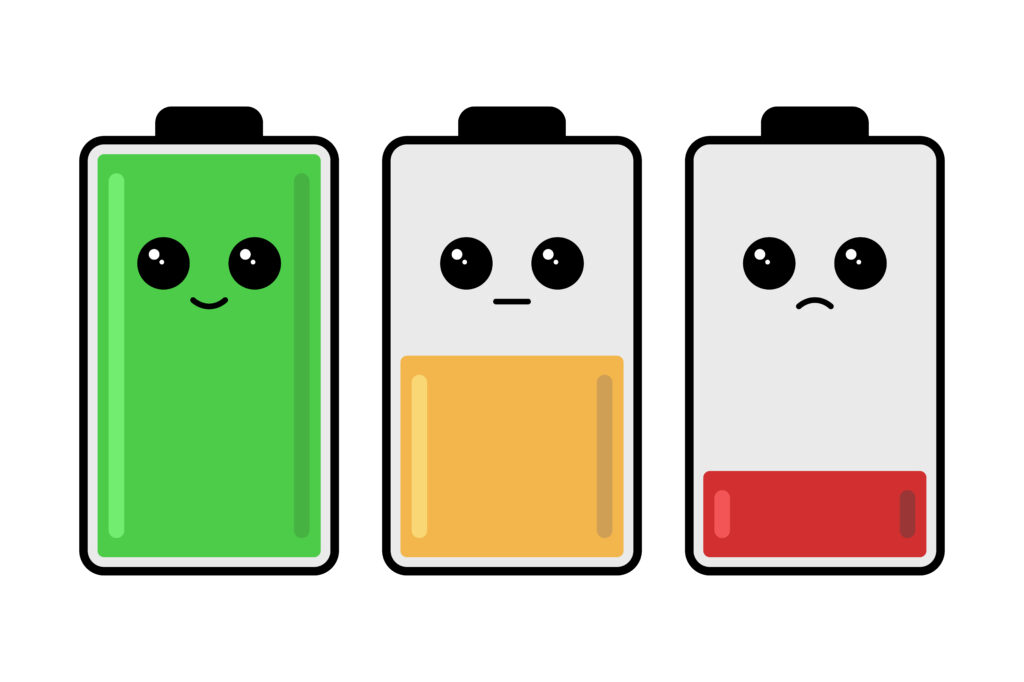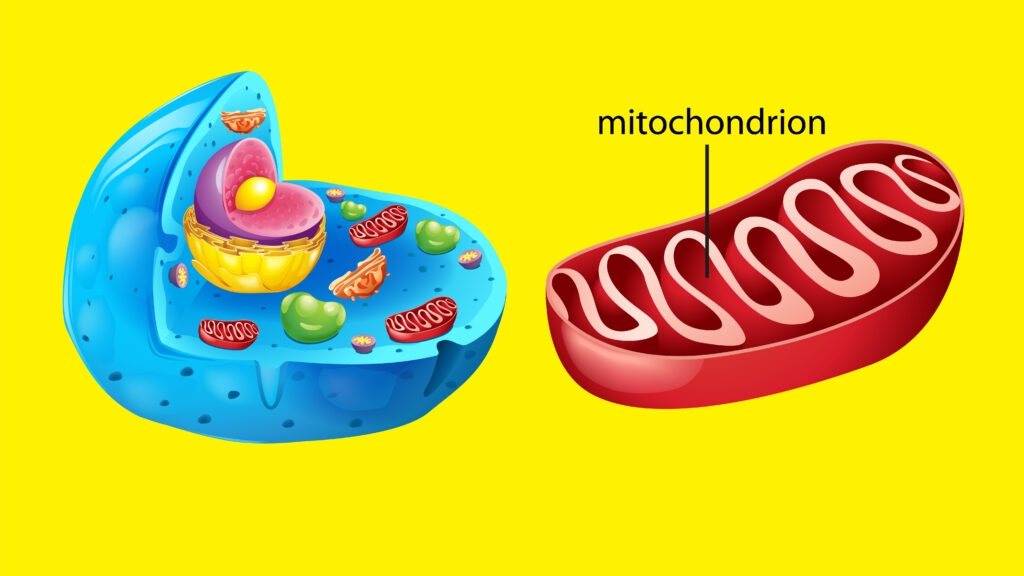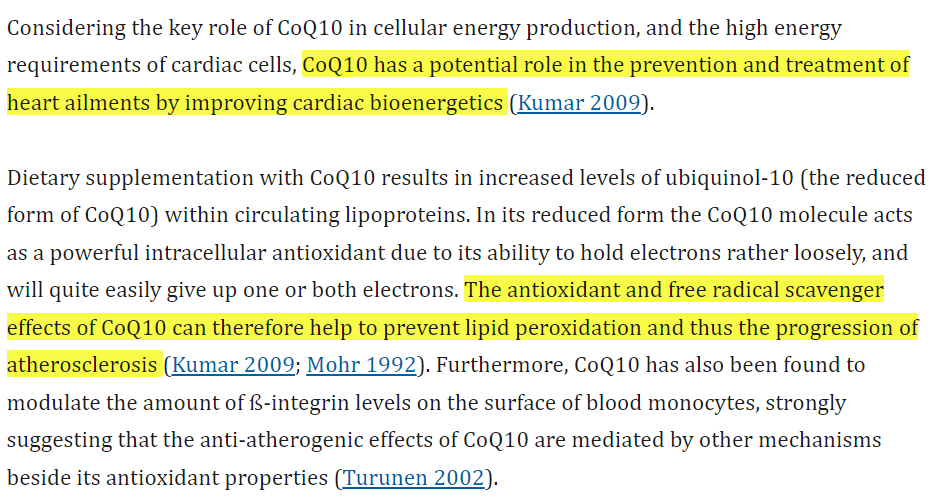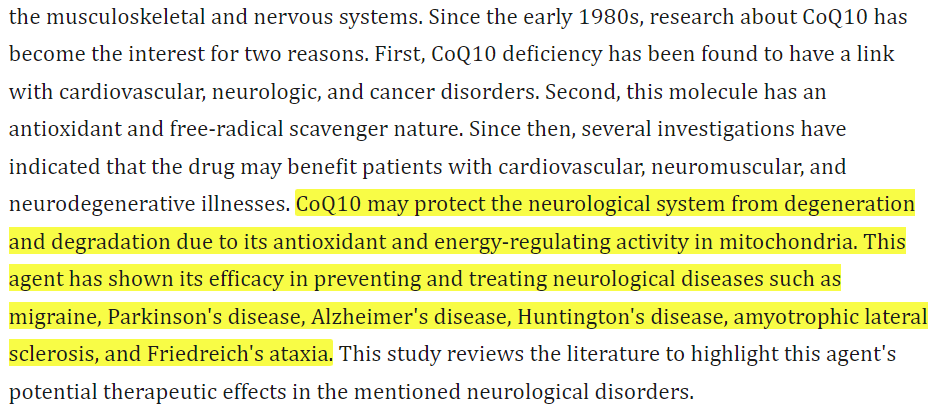Exhausted for No Reason? CoQ10 Could Be Your Best Friend
Imagine waking up daily feeling sluggish, like a smartphone that won’t charge past 20%.
You’ve had a good night’s sleep, your doctor says you’re healthy, yet the fatigue clings to you, making it hard to get through the day. Unfortunately, this experience is common for many people who feel constantly drained despite doing everything right.

That lingering exhaustion is often brushed off as life, but it might be something more — Chronic Fatigue Syndrome (CFS).
Fortunately, our body offers a powerful yet often overlooked solution: Coenzyme Q10 (CoQ10), a naturally occurring antioxidant that could be the key to leveling up your energy levels.
First, let’s understand Chronic Fatigue Syndrome.
Chronic Fatigue Syndrome (CFS) is a state of persistent, unexplained fatigue that doesn’t improve with rest. Many people experience this despite having normal medical reports. Even those who recover from illnesses like COVID-19 report weeks or months of ongoing tiredness.
So, what’s really going on?
- The root of this exhaustion often lies within our cells, more specifically in the mitochondria, which are tiny energy factories in our bodies. Mitochondria convert food and oxygen into ATP (adenosine triphosphate), the energy currency of our cells.
Remember back in school when we all learned, ‘The mitochondria are the powerhouse of the cell’? Well, here’s your ‘aha’ moment—now you know why!

- When the mitochondria aren’t functioning correctly, they produce less ATP, leaving you tired and drained. This process is known as mitochondrial dysfunction, a condition that plays a significant role in chronic fatigue and many other health issues.
This is exactly why we focus so much on cellular health. Every disease, whether it’s chronic fatigue, metabolic issues, or even more severe conditions, starts at the cellular level.
This is where CoQ10 steps in.
Meet Coenzyme Q10, your mitochondria’s best friend!
Coenzyme Q10, sometimes called CoQ10, is a naturally occurring antioxidant found in every cell in your body, particularly within the mitochondria. As we age, or when our lifestyle choices take a toll, CoQ10 levels drop, leading to decreased energy production. Even younger individuals can experience low levels of CoQ10 due to poor lifestyle habits, chronic stress, or heavy medication use.
But CoQ10 is more than just an energy booster. It serves various vital roles, from supporting heart health to protecting the brain against degenerative diseases.
Let’s take a closer look!
Heart health
Your heart never stops working, which means it requires a constant supply of energy. CoQ10 plays an essential role in maintaining heart health by ensuring the mitochondria in your heart cells function optimally.
Studies have shown that CoQ10 supplementation can be beneficial for people with heart diseases, improving symptoms and even reducing the risk of future heart issues.

Most cardiologists now recommend CoQ10 alongside conventional medications for individuals with heart problems. If you’re someone who has recently recovered from a heart attack or is dealing with any cardiac condition, speak to your doctor about adding CoQ10 to your routine.
A word of caution: If you’re already on heart medication, check with your healthcare provider before adding CoQ10 to avoid any potential interactions, especially if you have high blood pressure. CoQ10 has been found to slightly lower blood pressure, so it’s crucial to monitor this closely with professional guidance.
The antioxidant power of CoQ10…
Antioxidants are compounds that protect your cells from damage caused by free radicals, which are unstable molecules that can damage cells and accelerate aging. Free radicals are produced naturally in the body, but their numbers can spike due to external factors like pollution, processed foods, chemicals in cosmetics, and stress.
- When your body’s antioxidant defenses are overwhelmed by these free radicals, it leads to oxidative stress, which is linked to chronic conditions like cancer, diabetes, and neurodegenerative diseases.
- CoQ10 is a potent antioxidant that helps neutralize free radicals and protects the body from oxidative stress. As we get older, our natural production of CoQ10 declines, which can accelerate aging and contribute to various chronic diseases.
Supplementing with CoQ10 (of course under the prescription of an expert) helps replenish this antioxidant, thereby protecting against cell damage and slowing the aging process.

Role in energy production and post-illness recovery
One of the most crucial roles of CoQ10 is its involvement in the production of ATP, the energy molecule that powers every function in your body.
- When CoQ10 levels are low, your cells struggle to produce energy efficiently, which leads to chronic fatigue. This is why people who have undergone treatments like chemotherapy or battled viruses like COVID-19 often report prolonged periods of tiredness.
- In these scenarios, CoQ10 supplements can assist in speeding up recovery by aiding mitochondrial function and helping the body generate more energy. For those who suffer from ongoing fatigue or post-viral syndrome, CoQ10 could be a game-changer.
For migraine relief
Many people suffer from migraines without realizing that CoQ10 might be an effective tool to reduce their frequency. Studies suggest that CoQ10 plays a role in reducing the severity and occurrence of migraines, especially in individuals with certain types of headaches.
While CoQ10 is not a miracle cure for all headaches, its potential to ease symptoms makes it worth exploring, especially for those who deal with chronic migraines. Always check with your doctor before starting any new supplement!
Neurodegenerative diseases
Emerging research suggests that CoQ10 can help in the prevention and management of neurodegenerative diseases like Parkinson’s and Alzheimer’s. These conditions are linked to oxidative damage and mitochondrial dysfunction, areas where CoQ10 excels as a protective agent.

Patients with these diseases are increasingly being prescribed CoQ10 as part of their treatment plans. Even if you’re not at risk of these diseases, ensuring your CoQ10 levels are sufficient as you age may help keep your brain healthier for longer.
So, is supplementing with CoQ10 right for YOU? Let’s find out!
When it comes to CoQ10 supplements, not all products are created equal.
The most effective form of CoQ10 is ubiquinol, the reduced form that is more bioavailable (meaning it is absorbed better by the body).
- Some supplements are labeled as CoQ10 in their oxidized form (ubiquinone), which is less easily absorbed and must be converted into ubiquinol in the body.
- This conversion can result in a loss of efficiency, so it’s advisable to opt for supplements that already contain ubiquinol.
Always check with your doctor before starting any new supplement!
For those who prefer not to take supplements, CoQ10 is naturally found in several foods. Here are some of the best nutritional sources:
- Fatty fish like salmon, mackerel, sardines
- Organ meats such as liver, heart, and kidney (for those who consume animal products)
- Nuts and seeds, particularly peanuts, sesame seeds, and pistachios
- Vegetables like spinach, broccoli, and cauliflower
- Legumes such as peas, beans, and lentils
- Whole grains like oats and barley
- Bone broth because of its high content of glutamine
Elevate your energy levels with ethically grown fresh produce sourced from our wellness platform here.

Other lifestyle changes that can help maintain your levels naturally are:
- HIIT (high-intensity interval training), strength training
- No sugar, refined flour, and all the junk food.
- Quality sleep because our cells need rest
How much CoQ10 do you need?
The dosage varies depending on your health status and individual needs. Typical doses range from 100 mg to 300 mg daily, although those with specific health conditions, like heart disease, may require higher doses under professional supervision.
If you are taking statins, whether long-term or short-term, it’s crucial to ask your doctor to prescribe CoQ10 and selenium supplements (these are not allopathic drugs).
- This is extremely important to help prevent potential neuropathy, a common side effect of statins that affects nerves and muscles, leading to spasms, aches, burning, and tingling sensations throughout the body.
- Statins deplete CoQ10 and selenium at the cellular level, so putting them back into your body is essential.
Of course, the best approach is to work with your doctor and adjust your lifestyle to potentially reduce your dependence on statins over time.
Whether you’re taking it as a supplement or adding more nutritious foods to your lifestyle, giving your mitochondria a boost might be exactly what your body needs.
Here are a few supplements that support mitochondrial function:
- Alpha lipoic acid
- N-acetyl cysteine
- Resveratrol
- Magnesium
- L -carnitine
Caution: Before starting any new supplement regimen, it’s important to consult with your healthcare provider, especially if you have existing health conditions or are taking medications.

The last word!
Energy is not just something we seek; it is something we create through mindful living and nurturing our bodies.
By incorporating the six pillars of lifestyle—nutrition, adequate exercise, quality sleep, emotional well-being, reconnecting with the spirit, and conscious breathing—we can support our bodies in producing the energy we need.
Remember, your health journey is unique, small, consistent changes can lead to significant results over time.
Also Watch:
Feeling constantly fatigued or struggling with low energy levels?
Let us help you regain your vitality with personalized lifestyle solutions!
Set up a one-on-one consultation with our integrative team of life coaches who specialize in helping you achieve your wellness goals.
Reach out to us at 1800 102 0253 or write to us at consults@lukecoutinho.com.
Disclaimer: The information provided in this blog is for educational purposes only and is not intended to be a substitute for professional medical advice, diagnosis, or treatment. Always seek the advice of your physician or other qualified healthcare providers regarding any medical condition or before starting new supplements like CoQ10.
|
From a pimple to cancer, our You Care Wellness Program helps you find a way Talk to our integrative team of experts today 18001020253 |










Leave a Reply